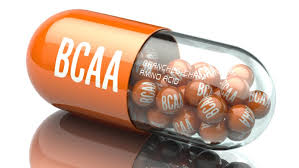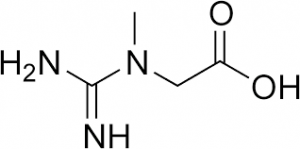Supplements – How Can They Benefit
- 09/20/2020
- Fitness
- Health & Wellbeing
- Nutritional Challenge
Supplements  How Can They Benefit?
How Can They Benefit?
Do you feel overwhelmed when walking into a supplemental store and having no idea where to begin, but know you are sore after workouts and need something to assist with your training regimen? Well, we want to help…below is beginning basic knowledge for various types of supplements. If you are needing additional information, please reach out to Adam and he can get you on the right track.
Protein:

Most people need 48 hours to recover between high intensity strength training exercises. By taking supplemental protein, the recovery time can be cut down significantly. Protein helps with muscle recovery, soreness, fatigue, and muscle gain. Protein is an essential macronutrient that helps build muscle, repair tissue, and make enzymes and hormones. Utilizing supplemental protein powders may also aid weight loss and help tone muscles.
Benefits:
- Weight Management
- Assists in feeling fuller longer resulting in smaller portion sizes and less frequent snacking
- Decrease blood pressure and total cholesterol and other risk factors for cardiovascular disease
- Muscle Growth
- Significantly improve muscle size and strength when combined with resistance training
- Note: once protein exceeds 1.6 grams per kilogram of body weight (or 0.73 gram per pound) the benefits of muscle gain plateau
- Recovery After Exercise
- Repair damaged muscle and tissue
- Speeds up recovery from muscle soreness after exercise
- Reducing muscle damage and improving muscle performance with muscle protein synthesis
- Added Nutrition
- Intense training regimen benefits from having about twice the daily recommended intake of protein, ranging from 1.4 to 2.0 per kg of body weight.
Types:
- Whey: water-soluble milk protein – complete protein (contains all amino acids the body required from food)
- Casein: Rich in glutamine, an amino acid that speeds up muscle recovery after exercise. Casein comes from dairy and the body absorbs this protein more slowly and that is why it is recommended to take at night.
- Soy: alternative to whey or casein for those that do not consume dairy. It also contains all the essential amino acids
- Pea: Many plant-based protein powders contain this protein, which is high-quality and good source of amino acid arginine
- Hemp: Hemp seeds are complete proteins that also contain essential fatty acids
Risks:
- Need to calculate nutritional needs based on expenditure during exercise
- Long term excessive consumption of protein may damage the kidneys and liver and affect the body’s bone and calcium balance
- Excessively high levels of protein can reduce intake of other foods such as fiber-rich fruits, vegetables, and legume that the body uses to sustain gut flora.
BCAAs: Branched-Chain Amino Acids

The human body has 20 different amino acids and 9 of those are considered essential. Essential means these amino acids cannot be made in your body and must be absorbed through your diet. Of these 9 essential amino acids, three are branch-chain amino acids: leucine, isoleucine and valine. BCAAs can be found in protein-rich foods.
Benefits:
- Increase Muscle Growth
- Leucine stimulates muscle protein synthesis
- Study: 5.6 grams of BCAAs after resistance workout had 22% greater increase in muscle protein synthesis compared to those who did not
- Decreased Muscle Soreness
- Assist to decrease muscle damage and help reduce the length and severity of DOMS (Delayed Onset Muscle Soreness)
- Study: Supplemented BCAAs before a squat exercise, experienced reduced DOMs and muscle fatigue – thus, supplementing with BCAAs before exercise may speed up recover time
- Reduce Exercise Fatigue
- Muscles use BCAAs during exercise, causing levels in blood to decrease and when blood levels of BCAAs decline, levels of the essential amino acid tryptophan in your brain increase – which can affect many cognitive functions
- Prevent Muscle Wasting
- BCAAs account for 35% of the essential amino acids found in muscle proteins – therefore it is important they are replaced during time of muscle wasting to halt it and slow its progression
- Improve Health regarding Liver Disease
- Nutritional intervention for liver disease and to prevent complications
Fish Oil:

Fish Oil is high in the omega-3 fats EPA and DHA (EPA – eicosatetraenoic and DHA – docosahexaenoic acid). These fatty acids reduce muscle soreness and less severe DOMs.
Benefits:
- Improved heart health
- Increase levels of “good” HDL Cholesterol levels
- Lower Triglycerides by 15-30%
- Reduce Blood Pressure
- Prevent arterial plaques
- Weight Loss
- Reduce liver fat which plays a role in weight gain
- Support Eye health
- Support healthy skin
- Reduced inflammation
- Reducing muscle soreness
- Following exercise need 2,000-3,000mg per day for EPA and DHA for this affect
Creatine:

Creatine increases muscle phosphocreatine stores which aids in the formation of ATP (adenosine triphosphate). ATP is the key molecule your cells use for energy. During exercise, your rate of ATP resynthesizes limits ability to continue to perform at your maximum intensity. Thus, Creatine allows you to produce more ATP energy to fuel your muscles during high-intensity exercise.
Benefits
- Adding muscle mass
- Raise levels of insulin-like growth factor 1 (IGF-1) – promotes increases in muscle mass
- Increase water content of your muscles – cell volumization
- Decreases levels of myostatin, which is responsible for stunting muscle growth. Reducing myostatin can help build muscle faster
- Improve High-Intensity Exercise performance
- Strength
- Sprint Ability
- Muscle endurance
- Resistance to fatigue
- Muscle mass
- Recovery
- Brain performance
- Fights neurological diseases
- Lower blood sugar levels and fight diabetes
Pre-Workout:

Pre-workout supplements are multi-ingredient formulas designed to boost energy and athletic performance. There are many different formulas with various ingredients including but not limited to amino acids, B vitamins, caffeine, creatine, and sweeteners.
Components and effects on athletic performance:
- Nitric Oxide
- Relaxes blood vessels and improve blood flow
- Included via L-arginine, L-citulline, or other dietary nitrates such as beetroot juice
- Benefit by boosts oxygen and nutrient transport to muscles and enhancing athletic performance
Protein Resources:
https://bjsm.bmj.com/content/52/6/376
https://www.ncbi.nlm.nih.gov/pmc/articles/PMC5667622/
https://jissn.biomedcentral.com/articles/10.1186/s12970-018-0242-y
BCAA Resources:
https://pubmed.ncbi.nlm.nih.gov/16365096/
https://pubmed.ncbi.nlm.nih.gov/16424142/
https://pubmed.ncbi.nlm.nih.gov/28638350/
https://pubmed.ncbi.nlm.nih.gov/20601741/
Creatine Resources:
https://www.ncbi.nlm.nih.gov/pmc/articles/PMC2048496/
https://pubmed.ncbi.nlm.nih.gov/12701815/